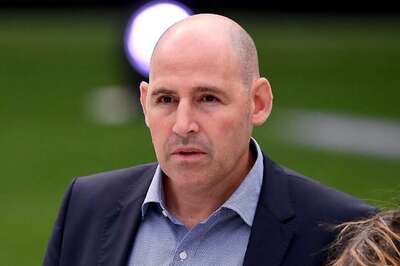
views
New Delhi: The government on Friday proposed retroactive changes in its tax rules, prompting speculation that Vodafone's $2.2 billion tax case could be reopened, although a senior government official denied the government was looking to raise any fresh demand on the British mobile phone giant.
Still, tax professionals said the potential law change is likely to come in for challenge.
"They have amended the law because the Supreme Court found the law deficient on some grounds," said Neeru Ahuja, a partner at Deloitte Haskins & Sells, referring to the Vodafone case.
"Now of course the issue is: can the government legitimately do this," she said.
Vodafone in January won a five-year legal battle against India's tax office in a Supreme Court ruling, which said authorities did not have jurisdiction to tax the company's 2007 acquisition of Indian mobile phone assets.
The tax department has sought a review of the Supreme Court verdict. The review petition is yet to be heard by the court.
In its annual budget presented in parliament on Friday, the finance ministry proposed changes in several tax rules on a retroactive basis to 1962, which some experts took as a clear indication that the government was looking to tax the Vodafone deal and other mergers.
"The way they have proposed this law, everything they can look at again. They have completely changed the law with retrospective amendment from 1962," said Ahuja.
Finance Secretary RS Gujral later told reporters that there was "no question" of raising any fresh tax demand on Vodafone, but referred to the review petition filed by the tax office in the Supreme Court.
Separately, Vodafone said in a statement it was examining the proposed rule change with its lawyers, but believed there would be no impact.
"We do not believe this retrospective change in tax law should have any impact on the final judgment handed down by the Supreme Court in our tax case. We continue to have faith in the Indian judicial system," the company said.
In the Vodafone case, India's tax office had argued the company's deal to buy the local mobile phone operations of Hutchison Whampoa was liable for tax because most of the assets were in India.
Vodafone, the world's largest mobile operator by revenue, had argued that Indian tax authorities had no right to tax the transaction between two foreign entities. India's Supreme Court ruled that under existing rules, Vodafone was not liable to pay tax on the deal.
The proposed amendment in tax rules may also be also significant for other multi-national companies including Kraft Foods, SABMiller and AT&T Inc, which also face potential tax demands in India over cross-border deals.
Another Indian finance ministry official, who declined to be identified, said the government intended to tax such cross-border deals and estimated total tax dues of 350-400 billion rupees under the proposed law change.
Dinesh Kanabar, deputy CEO and chairman of tax at KPMG called the proposed retrospective amendment in tax rules a "big negative".
"If an assessee gets an answer after years of litigation only to find the law amended retrospectively, why litigate?," he said.



















Comments
0 comment